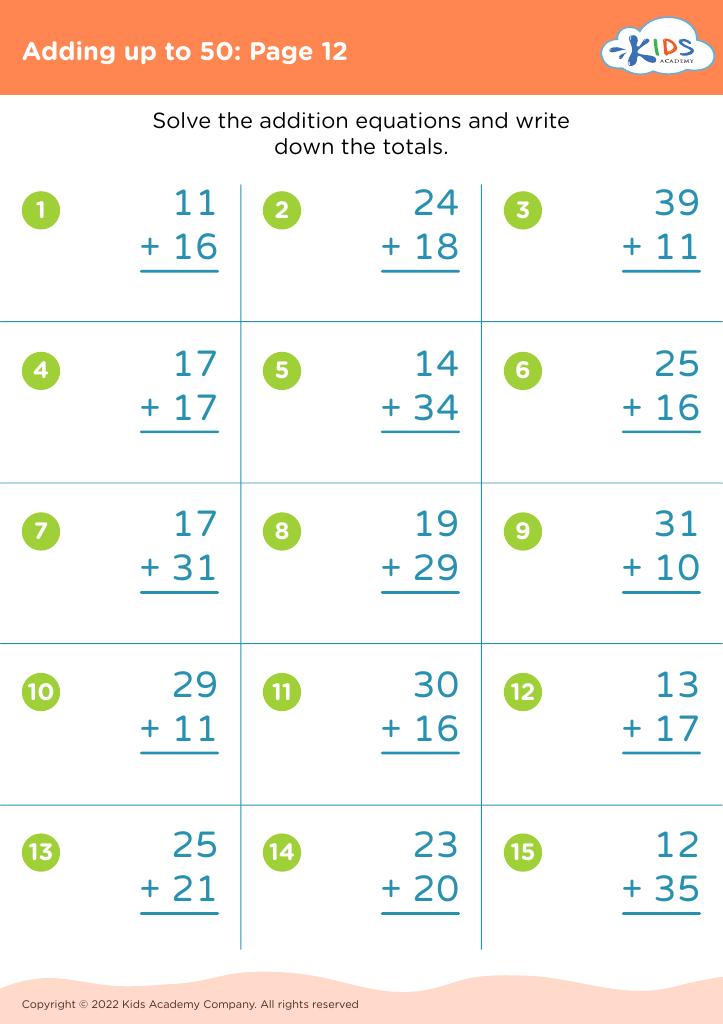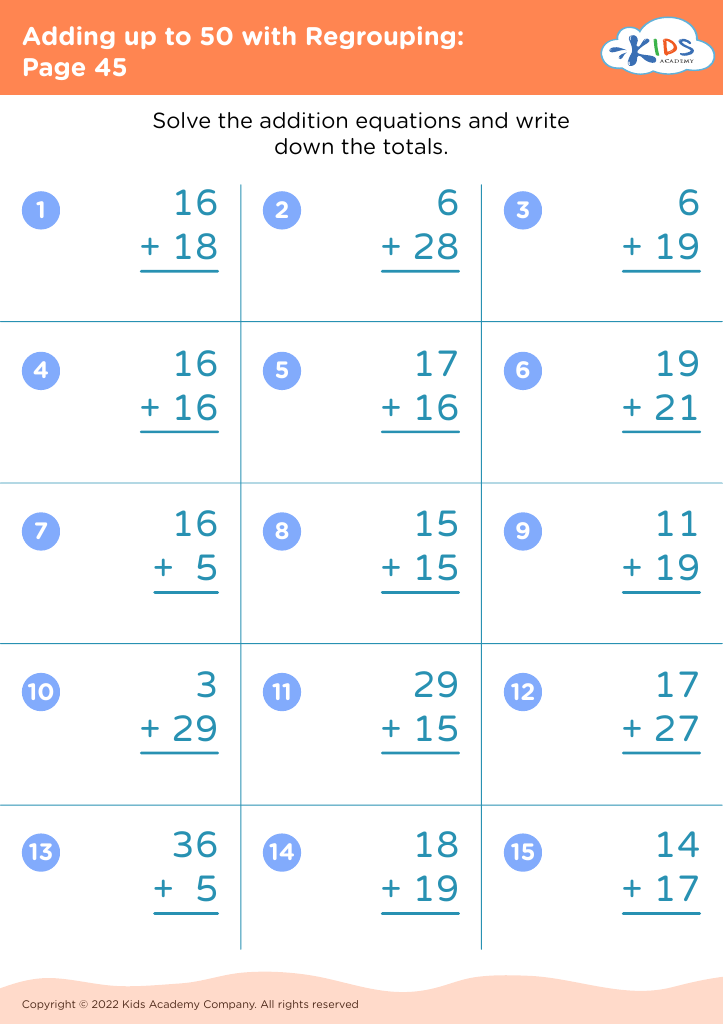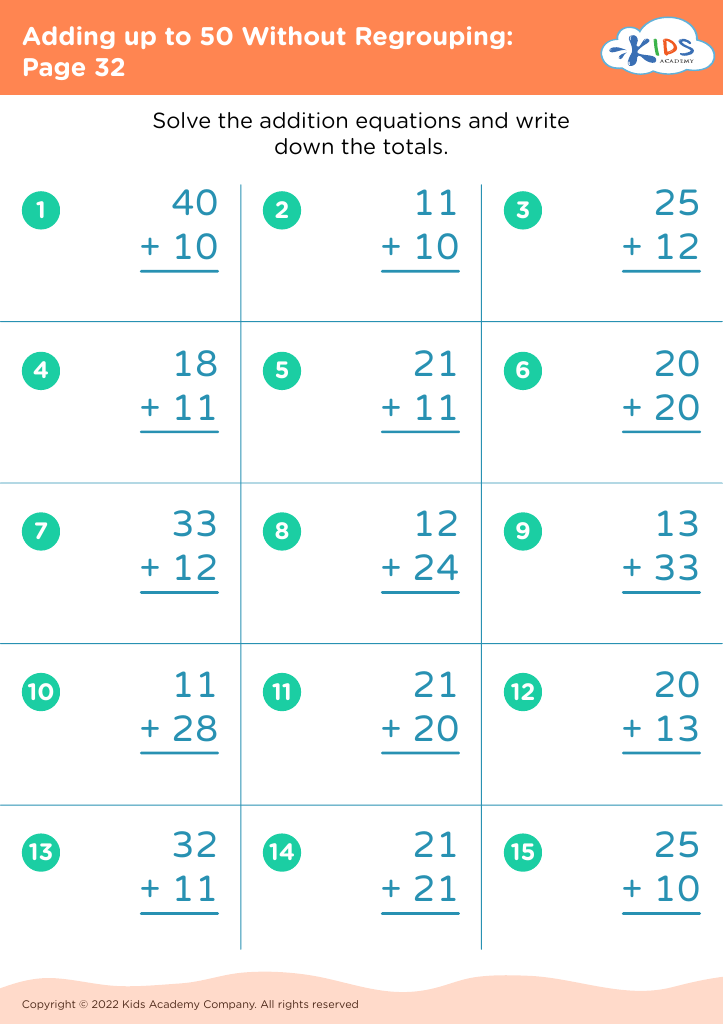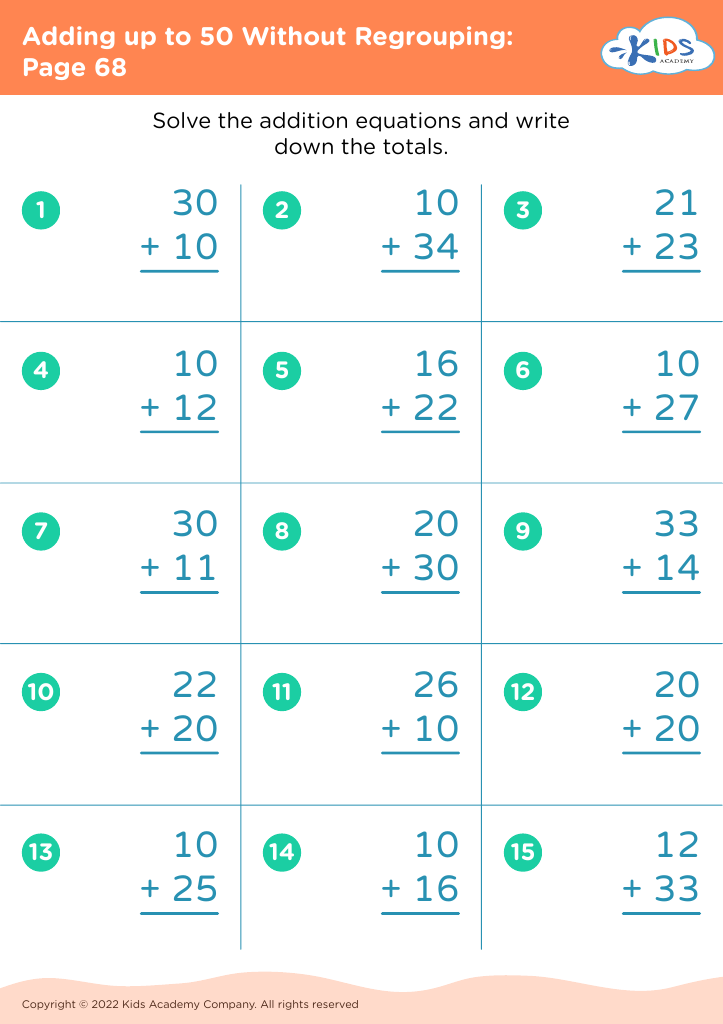Basic Addition Skills Adding up to 50 Worksheets for 7-Year-Olds
5 filtered results
-
From - To
Our "Basic Addition Skills Adding up to 50 Worksheets for 7-Year-Olds" are designed to help young learners master essential math skills. Perfect for second graders, these printable worksheets guide children through simple addition problems that build a strong foundation in mathematics. Engaging and fun, our exercises encourage students to practice adding up to 50, promoting confidence and a love for learning. Ideal for classroom use or at-home practice, these worksheets align with essential learning standards, ensuring your child develops crucial addition skills at their own pace. Explore our collection to support your child's math journey today!
Basic addition skills are a foundational aspect of early math education, and proficiency in adding up to 50 is particularly important for 7-year-olds. First, mastering these skills boosts a child's confidence, making them more comfortable with math and developing a positive attitude towards learning. At this developmental stage, a strong grasp of addition lays the groundwork for more complex mathematical concepts such as subtraction, multiplication, and division.
Furthermore, addition skills are not just relevant in the classroom but are essential in day-to-day life. Children use addition to solve real-world problems, from counting money and measuring ingredients in recipes to splitting up items among friends. It helps develop logical thinking and problem-solving skills, which are critical in academic and social contexts.
Lastly, early math proficiency is linked to later academic success. Studies show that children with solid early math skills are likely to perform better in school across all subjects. This can lead to greater opportunities and achievements down the road. By emphasizing the importance of addition skills up to 50, parents and teachers ensure that children have a solid mathematical foundation, fostering a lifelong love for learning and giving them the tools they need to succeed in their future education and beyond.

















